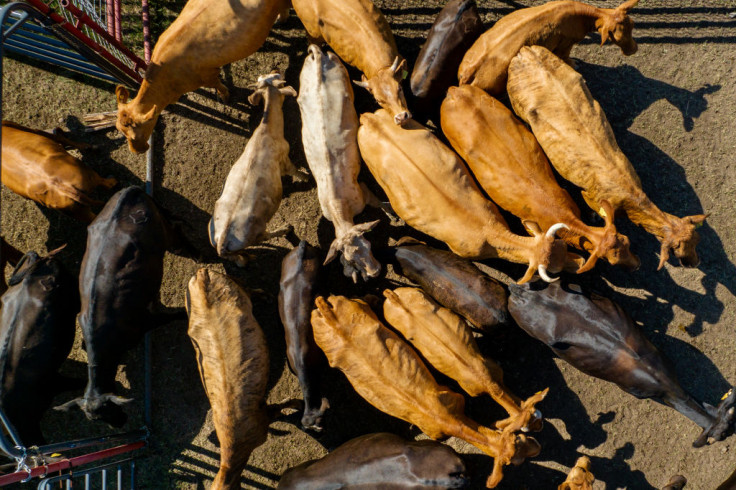
It has been a few weeks now since the Texas Parks and Wildlife Department (TPWD) warned Texas residents about the possibility of New World Screwworm (NWS), an invasive fly that lays eggs on an animal's open wound or other areas such as eyes or mouth that then dig into the animal and feed on living flesh.
Despite no confirmed identifications of screwworm in Texas, the U.S. Department of Agriculture has banned Mexican cattle imports since November. And according to Texas Agriculture Commissioner Sid Miller, the ban on imports is a much bigger problem than the screwworm itself, as closing cattle imports damages their livelihoods, bottlenecks beef production and can lead to potential increases in beef prices.
Ben Weinheimer, president and CEO of the Texas Cattle Feeders Association, told the Texas Tribune that about 3% of U.S. cattle comes from Mexico, with two thirds of such imports going to Texas, New Mexico and Oklahoma.
The ban has been in place while USDA installs new inspection pens and enhanced safety protocols to ensure cattle are healthy. And although halting production can cost millions of dollars to livestock producers, preventing it can save them much more money.
Screwworm was declared eradicated from the U.S. in 1966, but Texas saw an outbreak that affected 20% of its cattle in 1976. More recently, it saw a resurgence in 2016 in the Florida Keys, killing more than 130 deer before being eliminated from the region.
With the threat of screwworm in mind, Erin Robinson of the Texas Animal Health Commission says all these precautions can save livestock producers up to $1 billion a year which accounts for costs of labor, treatment, veterinary care, eradication efforts and loss of production.
But as experts continue to treat cows, the ban on Mexican imports has led to a recent increase in cow prices, said Texas A&M agricultural economics professor David P. Anderson. USDA estimates that prices of feeder steers will rise by 8% in 2025, and if import restrictions remain, a lower beef production could continue to push up prices for consumers.
"I get calls every single day from people asking for cattle," said Alvaro Bustillos, president of Vaquero Trading, a livestock procurement company in El Paso. "Key steps in the production value chain are being stopped because people cannot source cattle."
Although screwworm has not been detected in American cattle, USDA says the number of cases in Central America has ballooned in recent years and gone from an yearly average of 25 to more than 6,500 cases reported in Panama in 2023. Federal officials approved a $165 million emergency investment in December to stop screwworm from entering the U.S. and to help Mexico and Central America to eradicate it.
Despite not being identified in Texas cattle, screwworm continues to be a big threat. Officials have not specified when shipments will resume, but an USDA spokesperson said in late December that shipments would resume "incrementally after the New Year," with full resumption expected sometime after that.
© 2025 Latin Times. All rights reserved. Do not reproduce without permission.







